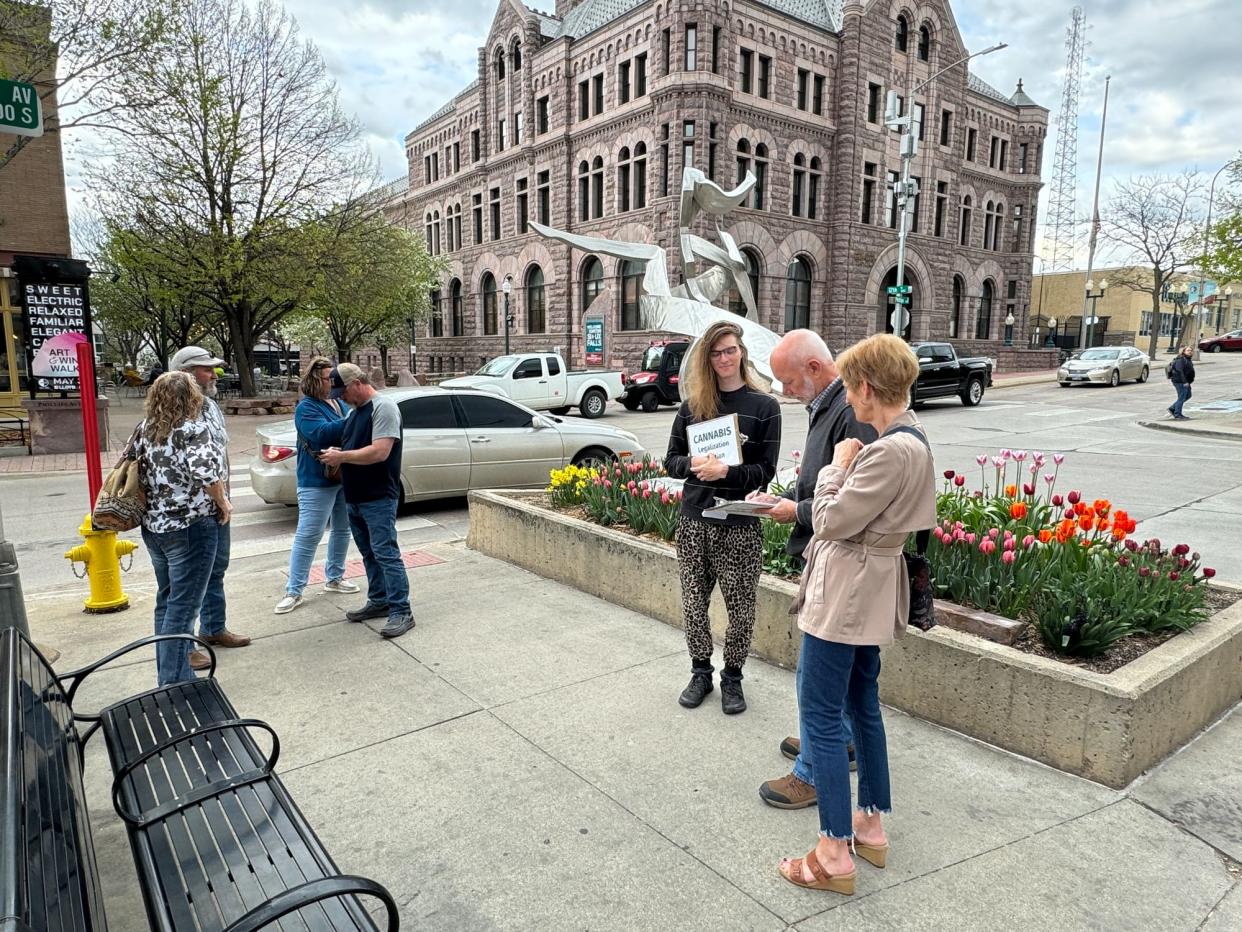South Dakota's recreational marijuana campaign readies another ballot run

Matthew Schweich hopes that when it comes to recreational marijuana legalization in South Dakota, the third time is the charm.
"Everything's on schedule," said the campaign director of South Dakotans for Better Marijuana Laws, whose group handed in 29,030 signatures for its recreational pot initiated measure to the Secretary of State's office in Pierre on Tuesday, the final day that signatures could be submitted for 2024.
It's been a mad dash to the finish line for the pro-legalization group, which also had a hand in putting the issue on the ballot in 2020 and 2022. The effort got a late start due to concerns about funding and didn't really hit its stride with paid circulators until February.
"I think it would have been a mistake to launch a signature drive without knowing we had the resources to do it properly," said Schweich, adding that funding for the petition drive came from the Grow South Dakota Ballot Committee (with former state legislator Deb Peters as treasurer) and Puffy's Dispensary, a West River-based medical cannabis operation.
The number of verified signatures needed to qualify initiated measures for the ballot is 17,508, which represents 5% of the total vote for governor in the last gubernatorial election. Constitutional amendments require 35,017, which is 10%.
After receiving a petition, state law requires the Secretary of State to “examine and catalog” the signatures and make them available to the public upon request for a reasonable fee. Within five days of that examination, the Secretary of State is required to generate a random sample to determine the validity of the signatures, with the validation sheets also available for public inspection.
If the recreational marijuana measure makes the ballot, the campaign will have to grapple with possible voter fatigue on an issue that will be put before South Dakota voters for a third consecutive statewide election.
In 2020, pro-legalization Amendment A passed with 54% of the vote, clearing the way for recreational marijuana to be implemented in the state. Medicinal pot was also approved by voters that year in an initiated measure.
Gov. Kristi Noem’s administration challenged the recreational marijuana amendment, saying it violated the state’s requirement that constitutional amendments deal with just one subject. That argument prevailed in a 4-1 decision at the South Dakota Supreme Court.
Supporters tried to pass recreational cannabis again in 2022, and South Dakotans rejected that effort, sending Initiated Measure 27 to defeat with 53% of voters against it.
Schweich acknowledges making a political miscalculation by going back to the issue in 2022 rather than "taking a breather" and waiting for 2024, a presidential election year with higher voter turnout than midterms.
"My theory was that the anger over the amendment being overturned would cause a whole bunch of voters who might not otherwise show up for the midterms to go out and vote," said Schweich, who also runs Eagle Campaigns, a political campaign service in Sioux Falls. "It was an ambitious theory, and unfortunately things didn't play out that way. It turns out that changing an electorate is very difficult."
South Dakotans for Better Marijuana Laws will focus on get-out-the-vote efforts rather than trying to win "the hearts and minds" of voters on an issue that they are well-versed on following the 2020 and 2022 campaigns.
Recreational marijuana is currently legal in 24 states, with supporters pointing to economic advantages to the state economy from tax revenue. States collected nearly $3 billion in marijuana revenues in 2022, according to the Tax Foundation.
Opponents cite potential social costs and health risks such as a higher risk of cardiovascular problems from marijuana use, as outlined in a recent study in the Journal of the American Heart Association.
If the measure makes the ballot and fails, said Schweich, there will not be a fourth consecutive time on the ballot, at least from his group.
"If we fail in 2024, which I don't think will happen, I will respect that and will not be part of putting this issue on the ballot in 2026," said Schweich.
This story was produced by South Dakota News Watch, an independent, nonprofit news organization. Read more in-depth stories at sdnewswatch.org and sign up for an email every few days to get stories as soon as they're published. Contact Stu Whitney at at stu.whitney@sdnewswatch.org.
This article originally appeared on Sioux Falls Argus Leader: Recreational pot campaign readies another ballot run
